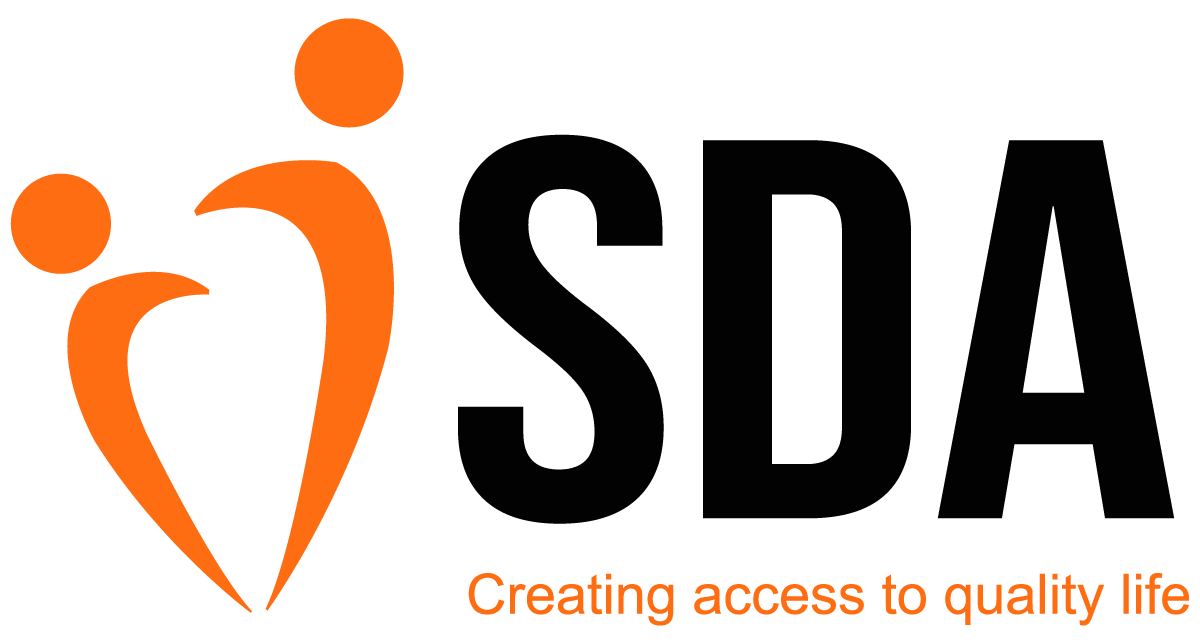Promoting governance, accountability, transparency and integrity (PROGATI)
In Bangladesh, citizens have a high tolerance to corruption. The public does not feel – নাগরিক পরীৰিল, comfortable formally raising corruption issues, especially when this requires challenging government officials. Corruption has become the norm; there are few tools available to average citizens, civil society organizations, business associations or civil servants to fight corruption. There is therefore a strong need for civil society to actively engage in activities to identify and reduce corruption. Bangladesh has no lack of civil society networks and coalitions. Most, however, are donors driven. A major challenge is how to unite people and organizations in the common cause of governance, transparency and integrity. One of the PROGATI’s key strategies has been to develop partnership and coalitions within civil society and across the sectors to promote corruption reform.
Society Development Agency (SDA) implemented the Project of Promoting governance, accountability, transparency and integrity (PROGATI) supported by Rupantar/AVAS/USAID. In the Patuakhali District the project implemented four Upazilas (Patuakhali Sadar, Galachipa, Bauphal and Mirzaganj). Six local level NGO/CSOs have been engaged direct and indirectly for implementing the project in Patuahali district. Phase wise AVAS and Rupantar were leading the project implementation in Barisal Division of this project as umbrella and SDA given lead for Patuakhali District of this project. Shuktara, RDS, Bashbaria, Krishnochura, Jagoroni and Citizen Forum worked as Local Partners of PROGATI. The activities were under this project as………
The PROGATI Public Institutions Component is working with the key Government of Bangladesh institutions and oversight agencies. Public institutions in Bangladesh are responsible for public service delivery and the lack of internal control mechanisms, transparency and accountability are significant challenges to reducing corruption in Bangladesh. PROGATI has three primary public institutions partners – the Office of the Comptroller and Auditor General, the Ministry of Food and Disaster Management, and the Ministry of Local Government, Rural Development and Cooperatives. In addition, PROGATI works with the Anti-Corruption Commission and the Information Commission.
Based on this consultation, PROGATI was taken a strategy to focus on building civil society expertise in using three anti-corruption tools:
- Anti-Corruption Campaigns;
- Citizen Scorecards; and
- National Budget Oversight
PROGATI has introduced a citizen scorecard tool that civil society organizations are using to engage citizens in anti-corruption initiatives. The scorecard methodology has been used hundreds of times across Bangladesh to confront corruption in areas such as food assistance programs, local construction projects, and the management of local health clinics and schools. The scorecard is a six-step process combining social audit, citizen monitoring, and citizen report card techniques. Over one month, the citizen scorecard. Targets an intervention area and forms an oversight committee;
- Targets an intervention area and forms an oversight committee;
- Raises awareness within the community about the citizen scorecards and the process;
- Researches recent events affecting the delivery of services in the district;
- Collects the data needed for the scorecard;
- Reports on the results in a public hearing; and continues to convene structured discussions about health
- service delivery among citizen monitors, government health officials, and health care providers.
Increasing Awareness of Public Audit:
In collaboration with CAG office, PROGATI has conducted a number of Workshops/Training in District on The Role of Audit, Auditee and other Organizations in Promoting Good Governance. The Workshop/Training participants were representative from government media and civil society organizations which is unique of this nature because of multi discipline participation. These workshops provided the opportunity to identify and discuss public service delivery, necessary improvements and peoples’ expectation. The Comptroller and Auditor General participated in these events to gather feedback from service recipients and audit departments. These event creates a platform of accountability and transparency of the public sector.
There are four expected results in the Public Institutions Component:
ER 1: Expand the reporting authority of the Office of the Comptroller and Auditor General beyond Parliament and the Public Accounts Committee;
ER 2: Increase effectiveness of CAG procedures for oversight and operating systems;
ER 3: Strengthen policy reform and implementation capacities; and
ER 4: Improve intra-governmental consultation and information
KEYS FOR SUCCESS:
PROGATI’s experience suggests three keys to success in citizen monitoring efforts:
- Significant front-end independent investment is necessary to establish which civil society organizations are seen as credible and unbiased when it comes to monitoring.
- Media engagement, which may include formal media as well as trained citizen reporters who report for local radio outlets, for example, is essential to ensure that complaints are not merely registered but are acted upon. For PROGATI, local media publicized scorecard results within the community and made sure the issues they identified- absenteeism, improper distribution of drugs, and unofficial/informal payments-were addressed in a discussion with the public.
- Transparency, rather than blame, is the desired outcome. For example, scorecards presented information regarding health service availability and quality openly to relevant government authorities. The public dialogue itself has led to significant engagement by public officials and substantial positive change.
Training on “Investigating Fraud and Corruption”
PROGATI designed and implementing the training on Investigating Fraud and Corruption with the objective of increasing their ability to detect and prevent fraud and corruption in the public financial management sector. A number of staff from Patuakhali District offices of Audit Department and Anti Corruption Commission offices has been trained. The training participants play important roles in the public financial management and anti corruption activities. This is the first time of this training arranged for the CAG and ACC staff.
